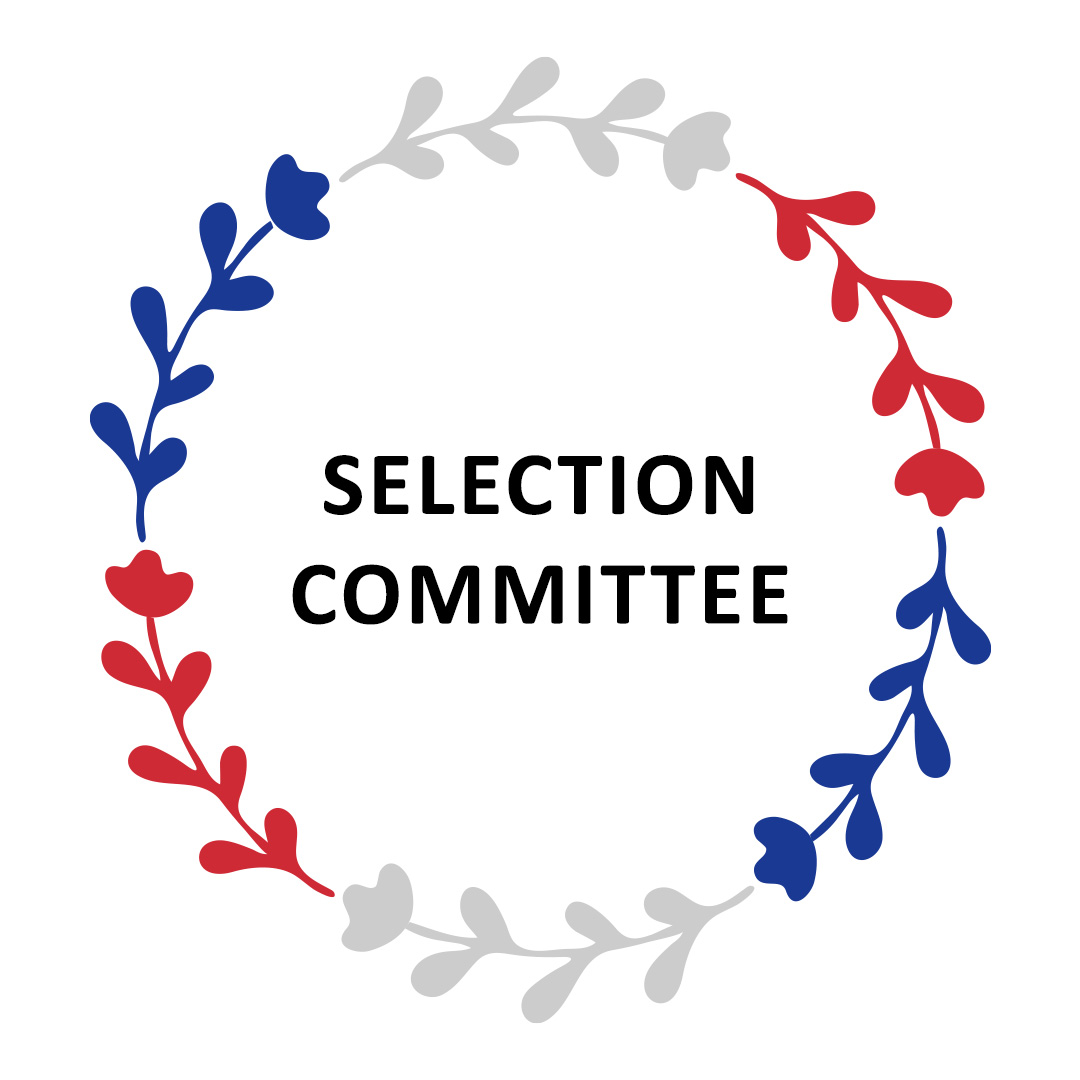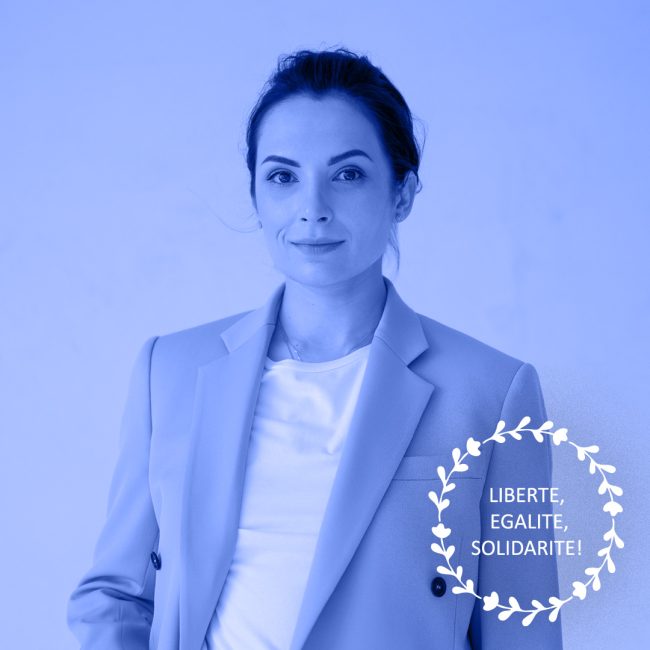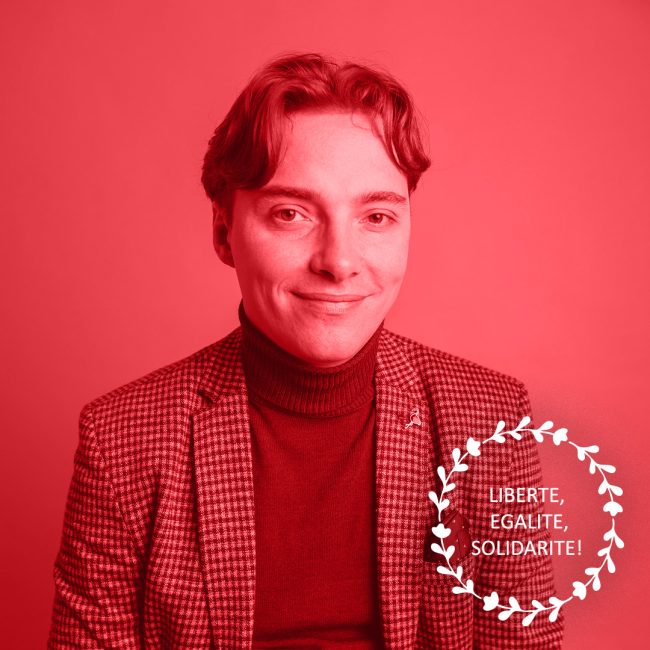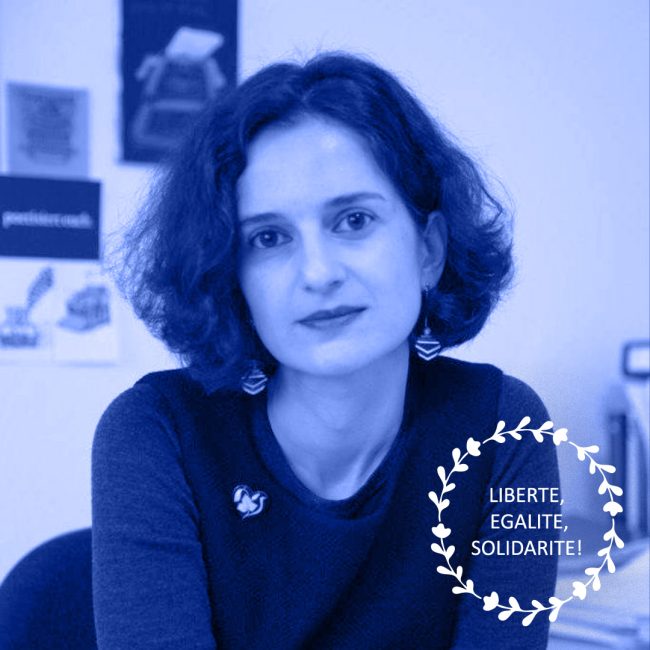
26 Nov MEET THE SELECTION COMMITTEE FOR THE LIBERTE, EGALITE, SOLIDARITE FORUM
We are thrilled to announce the four exceptional members of the selection committee for the LIBERTE, EGALITE, SOLIDARITE forum!
The selection committee consists of Vladimir Arsenijević, President of the KROKODIL Association; Yana Barinova, Program Director for European Policy and Ukraine at ERSTE Foundation; Andriy Lyubka, acclaimed Ukrainian writer and translator; and Nino Lejava, Director of the Belgrade office of Heinrich-Böll-Stiftung. These four experts will carefully review the applications and select 10 participating CSOs from Serbia and Ukraine.
Their collective expertise ensures a fair and thoughtful selection process, paving the way for meaningful collaboration between Serbian and Ukrainian civil society organizations.
Selected organizations will be contacted by the end of the week!

Vladimir Arsenijević (b. 1965 in Pula, Croatia, then SFR Yugoslavia) is an award-winning and internationally acclaimed Serbian writer, translator, editor, publicist and human rights activists. He won the 1994 NIN-award for his first novel In the Hold (U potpalublju), thus becoming the award’s youngest ever recipient. In the Hold was the very first debut book awarded this prestigious prize. His anti-war book was soon translated into 22 languages and placed Arsenijević almost instantly among the most translated Serbian writers. Since then, Arsenijević published twelve other novels, graphic novels, collections of short stories and books of essays. His essays and columns are published in both print and online media from all over former Yugoslavia. He is also a well-known editor who formed and developed the RENDE publishing house, where he worked as Editor-in-Chief from its foundation in 2000 until 2007. From 2007 until 2011, he ran a Belgrade subsection of the Croatian publishing house VBZ. He is one of the founders of the KROKODIL Association.

Yana Barinova is Program Director for European Policy and Ukraine at ERSTE Foundation. Previously, Yana held various positions within the Ukrainian government. She was the City Councilor for Culture of Kyiv and served as an advisor to the Ministry of Culture and Information Policy of Ukraine. Her academic background includes a PhD in Arts and Sciences from Sorbonne University and an MBA in Cultural Management from Paris Business School. She also completed courses at the Aspen Institute Ukraine and the Ukrainian School of Political Studies, giving her a solid foundation in both the socio-cultural and political fields. From 2015 to 2019, Yana headed the Babyn Yar Holocaust Memorial for four and a half years. She is also the curator of the course “Cultural Diplomacy in Times of War” at the Central European University and the author of the book New Media, Memory, Places as well as numerous articles and lectures on the topics of cultural policy, memory politics and cultural diplomacy. From 2019 to 2020, Yana was the head of the working group for the nomination of the Chernobyl Exclusion Zone for inclusion in the UNESCO World Heritage List at the Ukrainian Ministry of Culture and Information Policy. One of her passions is collecting contemporary art.

Andriy Lyubka (1987, Riga, Latvia) is a Ukrainian poet, writer, essayist and translator. He graduated from the Mukachevo Military School and went on to study Ukrainian Philology at Uzhhorod National University and Balkan Studies at the University of Warsaw. His books of poetry include Eight Months of Schizophrenia (2007), Terrorism (2009) and 40 Dollars Plus the Tips (2012). He has also published a collection of short stories, The Killer (2012), a German translation of one of his poetry collections, Notaufname (2012), a book of essays Sleeping with Women (2014), and a novel Karbid (2015), which was short-listed in the final selection of the Book of the Year by BBC Ukraine. Its Polish translation was short-listed for the Angelus Central-European Literary Award in 2017. His recent works include a collection of short stories The Room for Sadness (2016), a book of essays Saudade (2017) and the novel Your Gaze, Cio-Cio-san (2018). He is the winner of the Debut Award (2007), Kyiv Laurels (2011), recently he received literary award of Kovalev Foundation literary prize in the USA and the Shevelov Prize for the best book of essays of 2017 in Ukraine. Lyubka also translates from Polish, Croatian, Serbian, English and is the curator of two international poetry festivals.

Nino Lejava is the director of Belgrade office of Heinrich-Böll-Stiftung since April 2022. Prior to this, she was the director of Prague and South Caucasus offices of the Heinrich-Böll-Stiftung. Lejava has also worked as the CIM (Center for International Migration and Development) integrated specialist at the Centre for Training and Consultancy in Tbilisi, specializing in capacity building and civic education. She cooperated with the London-based NGO, Conciliation Resources as a part-time researcher and served as a local expert for the German development bank KfW. Lejava is one of the founders of the Soviet Past Research Laboratory and the founder of Melani Publishing. She has edited and coedited a large number of publications, including “Georgien, neu buchstabiert: Politik und Kultur eines Landes auf dem Weg nach Europa“ (2018), “South Caucasus at a Crossroad: Thorny Realities and Great Expectations” (2014). Nino Lejava studied international law and European Studies at Tbilisi State University, Georgia, University of Hamburg, and Europa-Kolleg Hamburg/ Institute for European Integration, Germany.



Sorry, the comment form is closed at this time.